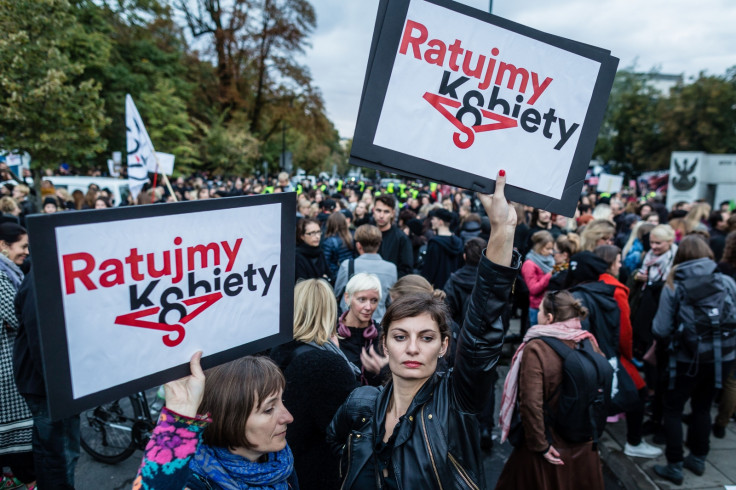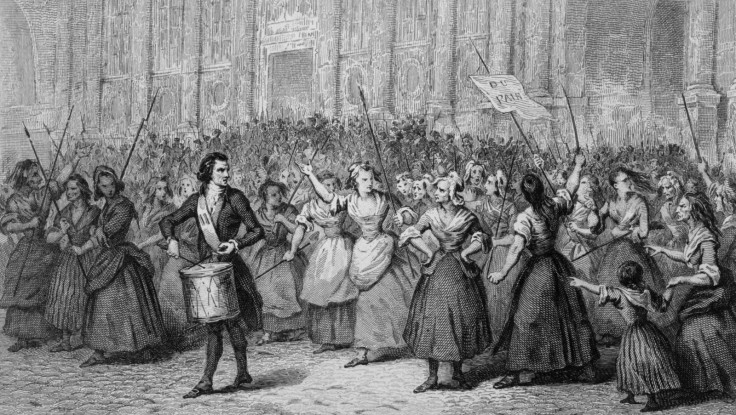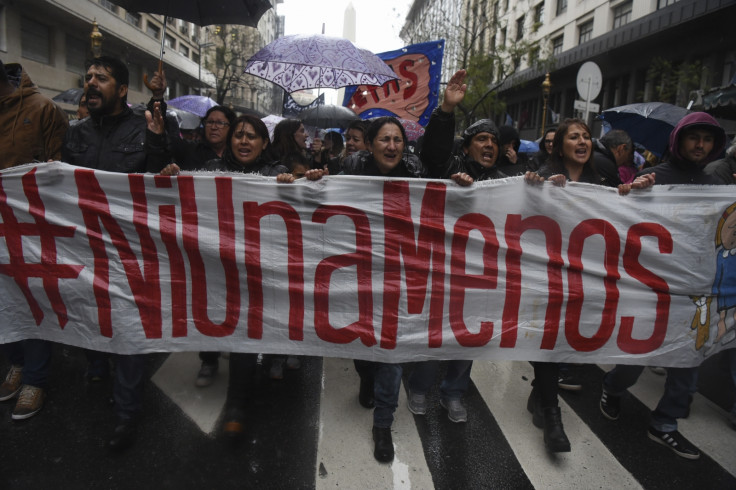A Day Without a Woman: Six historic times women went on strike to fight sexism and racism
Women have always been at the forefront of radical political and social change.

International Women's Day is a day to celebrate the achievements of women – but this year, activists are planning more radical action: a global women's strike.
On 8 March, women around the world will walk out of their jobs for the day to protest the marginalisation of women, inequality in the workplace, sexual violence and the curbing of reproductive rights.
Earlier this year, millions of women took part in women's marches across the world on the first day of Donald Trump's presidency, in solidarity with the Women's March on Washington.
The organisers of the Washington march have declared 8 March "A Day Without a Woman", alongside an International Women's Strike taking place in more than 30 countries on the same day.
The international strike might be the largest of its kind in recent history, but this isn't the first time women have gone on strike for equal rights. As early as the 1700s, women have been at the centre of political and social upheavals – from the French revolution to the abortion protests in Poland last year.
One of the most significant events of the French Revolution was the women's march on Versailles on 5 October 1789. The protest began in Paris' markets over the price and scarcity of bread, but the demonstrations merged with the actions of revolutionaries seeking a constitutional monarchy for France.

A group of women from a market turned into a thousand-strong crowd who stormed the city armory for weapons and marched to the Palace of Versailles, which was taken over by the mob. The following day, the king and the majority of the French Assembly returned with the crowd to Paris. What began as a small protest signified something much greater – the change of power and the political upheaval about to overtake France.
A century ago, women in the United States were not guaranteed the right to vote. On 3 March 1913, the first major national effort to secure universal women's suffrage took place with a huge parade in Washington DC. The day before the inauguration of President Woodrow Wilson, 8,000 participants marched through the city in front of thousands of spectators – the majority of whom were men to watch the presidential inauguration.
By the end of the day more than 100 marchers had been taken to hospital – some were trampled and others assaulted – which led to congressional hearings and job losses among the police. Nevertheless, the march was the beginning of a seven-year battle for the right to vote, which was eventually won by women in 1920.
In one of the largest demonstrations in South African history, 20,000 women descended on Pretoria on 9 August 1956 to protest the Apartheid pass laws – a form of internal passport system that was one of the dominant features of the country's apartheid, a system of racial segregation and discrimination. The demonstration was organised by the Federation of South African Women, who played a key part in South Africa's anti-apartheid resistance.

On 24 October 1975, 90% of Iceland's women refused to work, cook or look after children in one of the most significant – and effective – protests against inequality in Icelandic history. Thousands of women turned out for the demonstration against employment discrimination and pay discrepancies, in a move that would help cement Iceland as a bastion for gender equality.
Last year, Polish women staged a mass strike based on the Icelandic movement in protest of the government's proposal for a total ban on abortion. The strike, aimed at bringing Poland's economy to a standstill, forced businesses to close across the country as women took to the streets over their reproductive rights.
Since 1993, the former Soviet satellite has had one of the most prohibitive abortion laws in Europe. Under the proposed laws, women who had an abortion could have faced up to five years in prison and women who miscarried could have been at risk of being charged on suspicion of abortion. After the strike, the abortion ban was scrapped by the Parliament.
Last October, hundreds of thousands of women in Argentina took part in a protest against gender-based violence, after an attack in which a teenage girl was raped and tortured. At 1pm on 19 October, women across the country stopped working for one hour for the strike. Femicide rates are high in Argentina and according to the NGO La Casa del Encuentro, a woman is killed every 30 hours because of her gender.
© Copyright IBTimes 2025. All rights reserved.






















